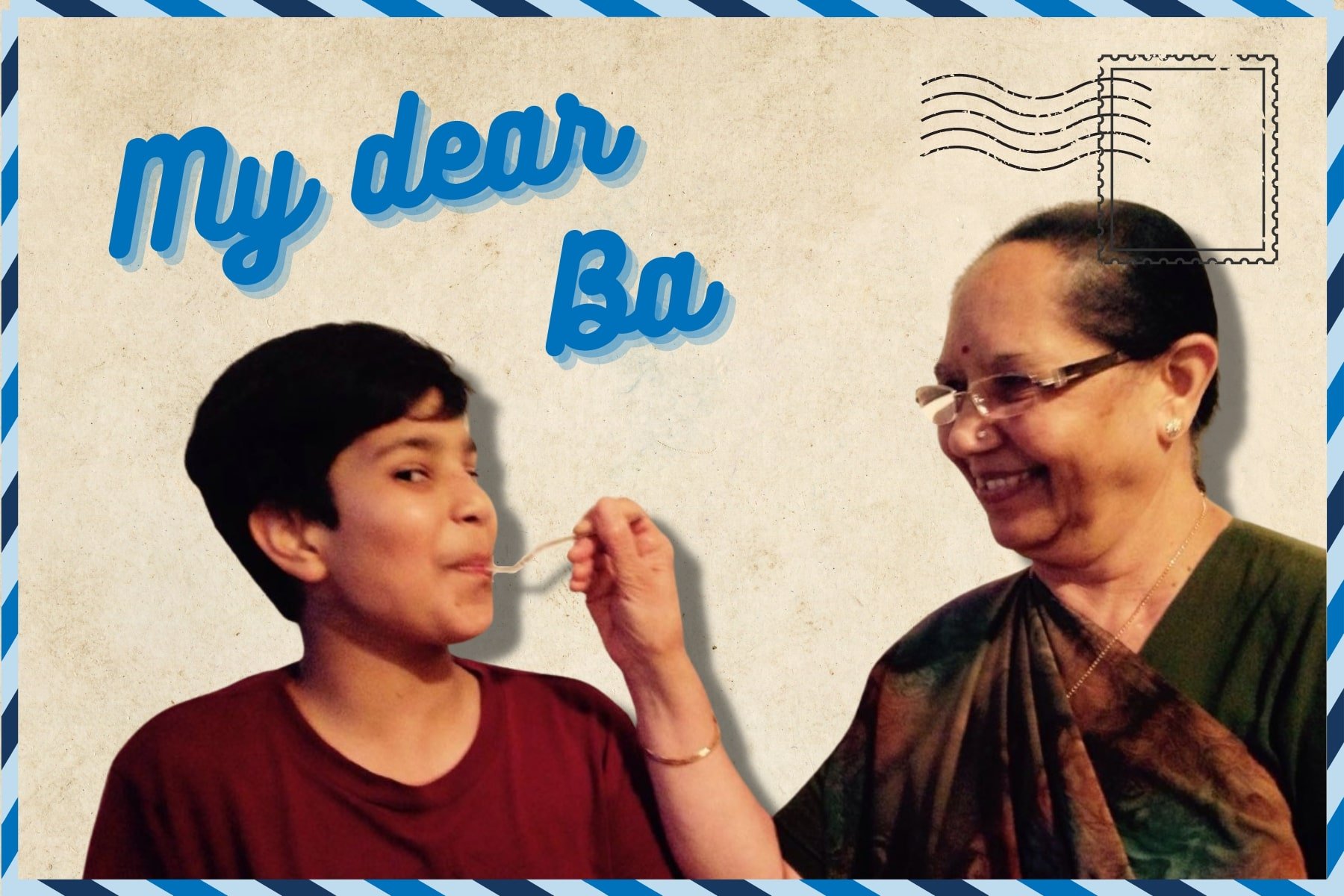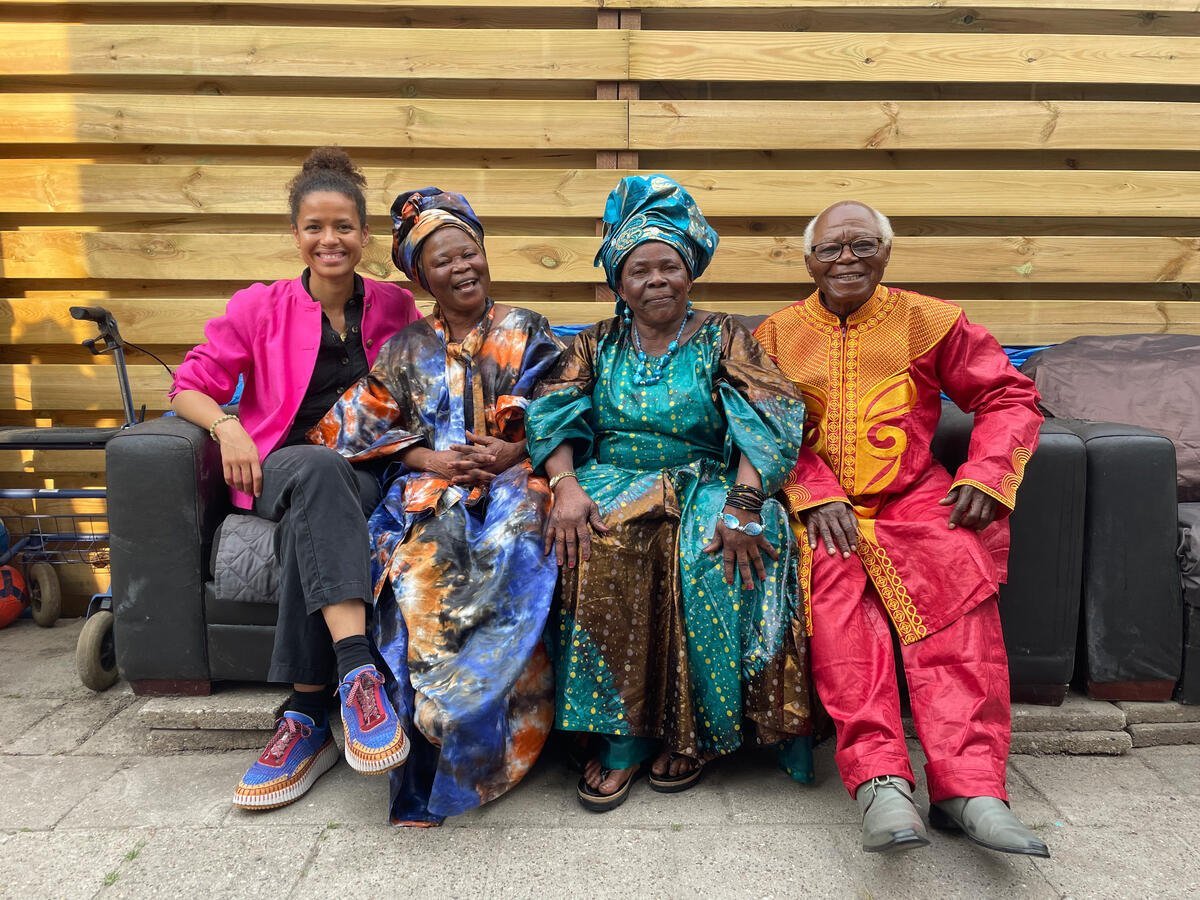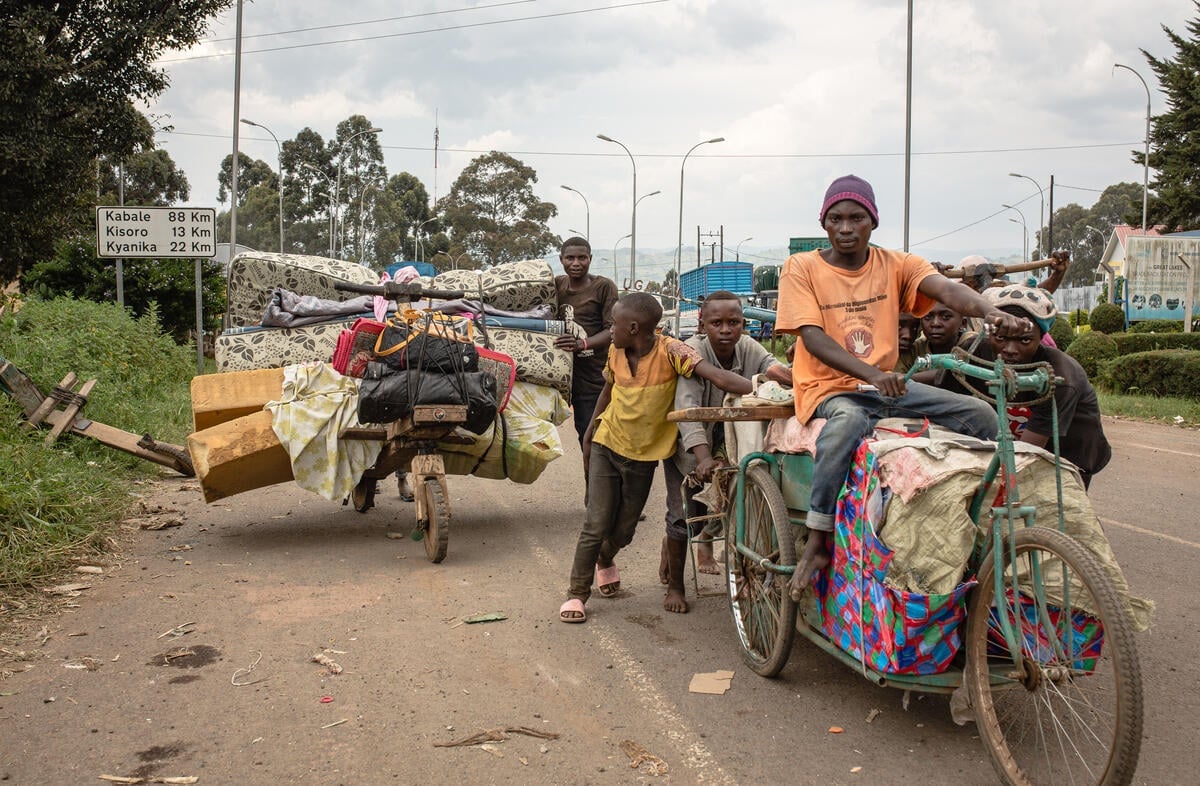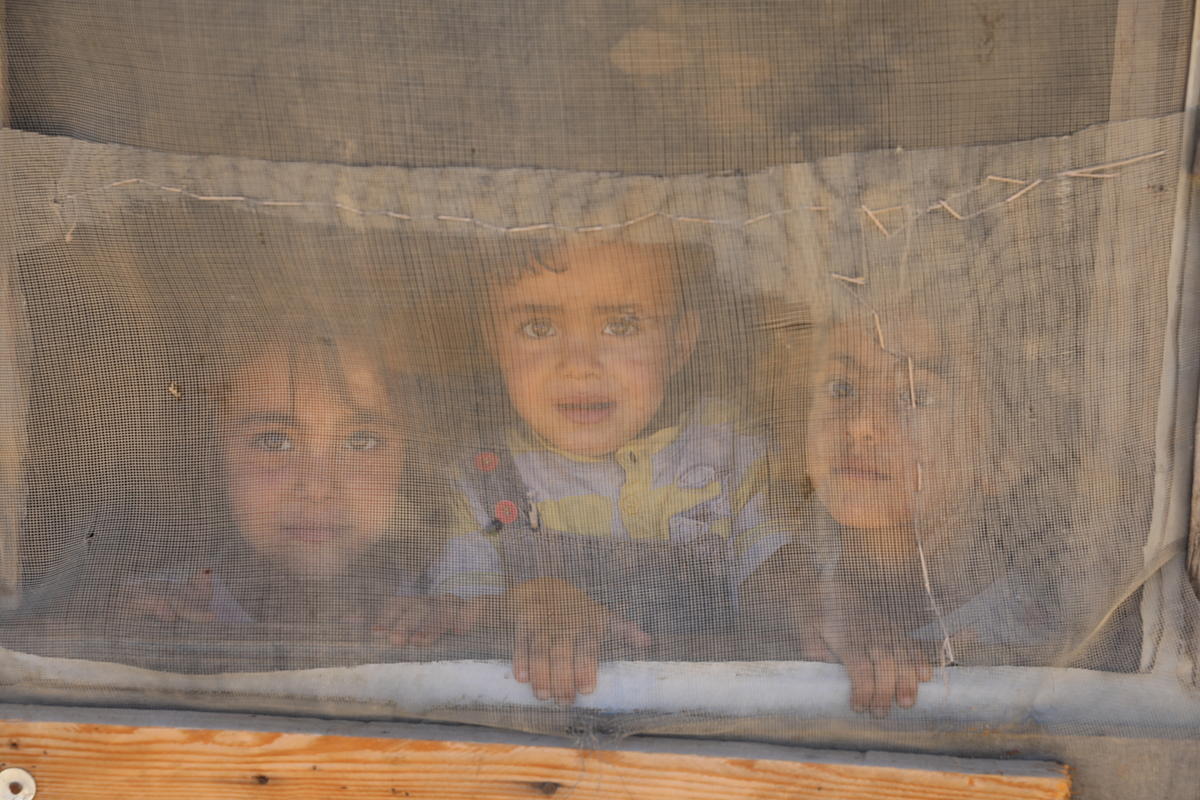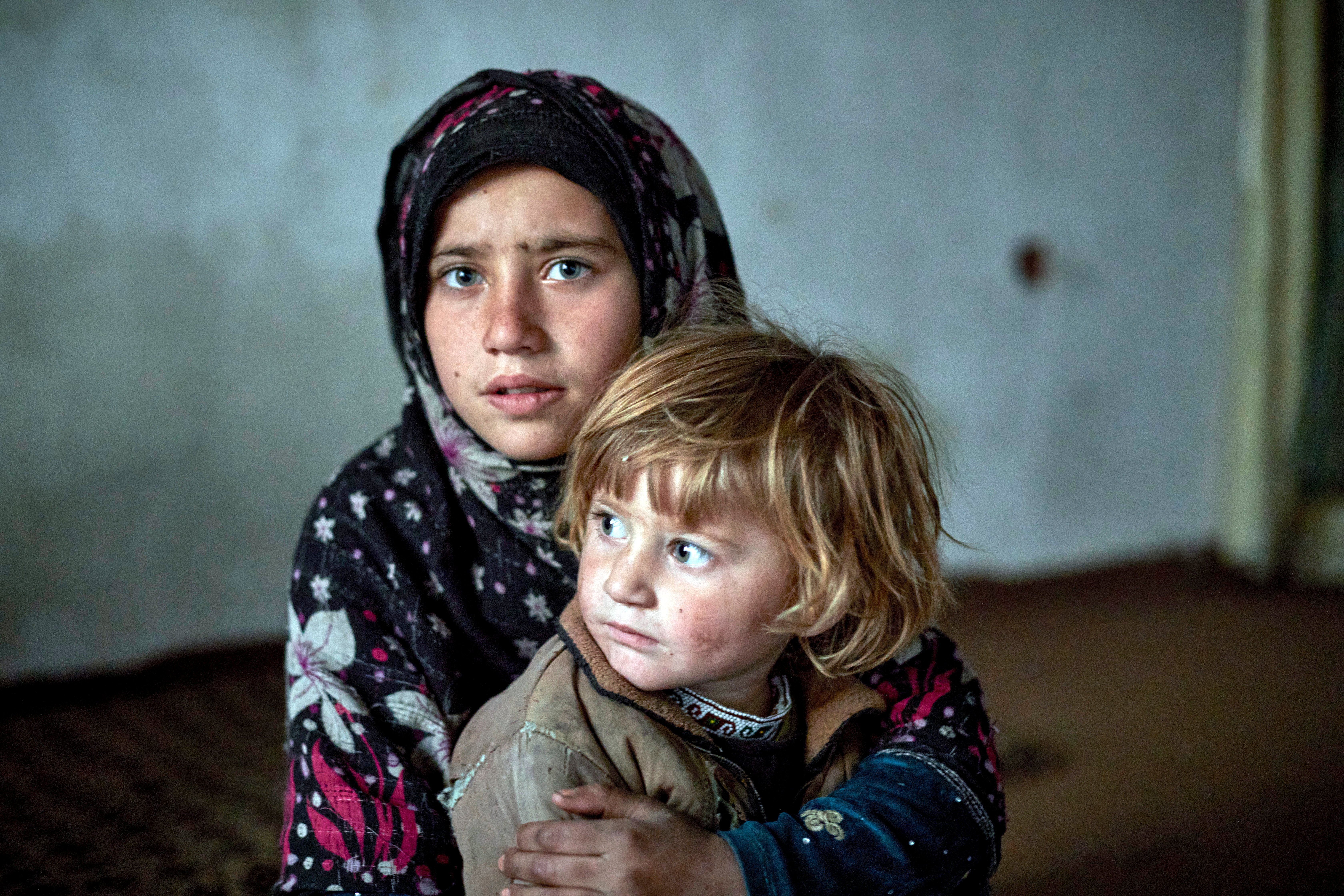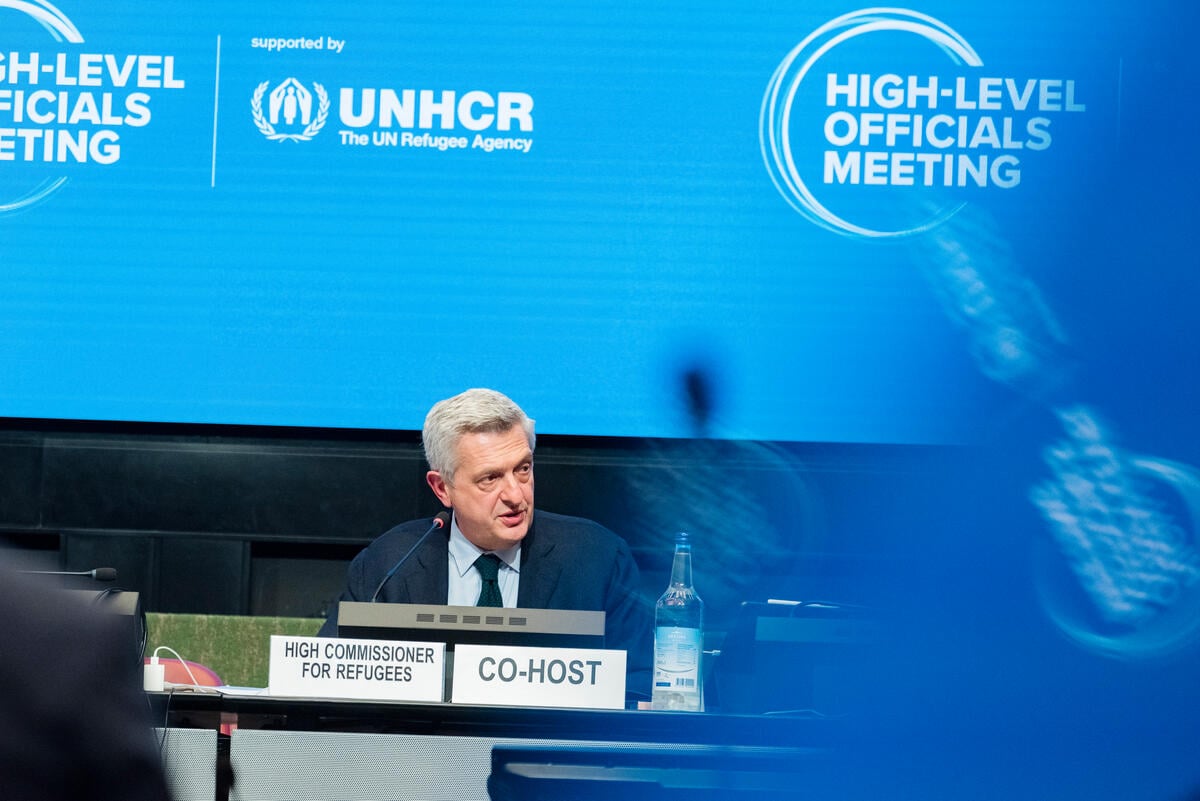French village opens its chateau as home from home for refugees

French village opens its chateau as home from home for refugees
Pessat-Villeneuve is a typical village in the Puy de Dôme region in central France. It has rows of detached houses with gardens, an elegant Romanesque church, a schoolyard where children play and shout, a French flag flying from the town hall, and a park with a chateau which was once a summer camp and is now owned by the town council.
In November 2015, Pessat-Villeneuve, which has a population of 550, opened the doors of the château as a reception and guidance centre for refugees from Calais and Paris. Since then, it has hosted 136 refugees.
This is the story of the village over the past year and the experiences of some of its residents.

The Mayor
The mayor is waiting for us on the balcony of the town hall when we arrive. Today is the day he devotes to village affairs, away from his work with the French postal service.
Gerard Dubois strongly believes in solidarity, in mutual support, and while it was an easy decision for him to open a reception centre for refugees in Pessat-Villeneuve, he had to persuade residents that it was the right thing to do. It was not as easy task. At a public meeting, organized in November 2015 when the centre was opened, he says he felt like a "bull in the ring”. In the weeks afterwards, he even received death threats, but solidarity was stronger.
"Hatred is noisy," he says. "Solidarity is quiet, but inspiring and effective."
"It’s difficult to accept that people you know do not hold the same values. But I have also discovered so much solidarity. I would have resigned if the decision to open the accommodation centre had been ‘no’.”
Dubois believes that initial fears stemmed from the fact that locals did not know the new arrivals. Any apprehension, he says, disappeared once they had met them. "Meeting and getting to know each other changes everything. It’s as simple as that. I don’t call them refugees, but guests.”

The Social Worker
Angelique Libeyre is a social worker with Forum réfugiés-Cosi, the non-governmental organization responsible for managing the reception centre in Pessat-Villeneuve. She provides asylum-seekers with information about their rights and how to claim asylum in France, guiding them through the procedure.
"It is an important time for the people being hosted in the reception centre,” she says. “It gives them an opportunity to rest and, with access to the right information, to think about their migratory route."
Her office at the Pessat-Villeneuve reception centre is never empty.
She has just received the news that 20 people have been granted refugee status. “Now we have to think about the next steps after they leave the reception and orientation centre."
Angelique likes her job but acknowledges that it can be challenging since they do not have the means to meet demand. “For example, we do not always have an interpreter to accompany the refugees to the doctor,” she says.

The Pensioner
Brigitte Dubosclard is a volunteer at the reception centre in Pessat-Villeneuve. A retired teacher, she gives French lessons to the refugees and also runs a clothing store. She was the first to volunteer to help during the public meeting organized by the mayor when the centre opened.
"When I realized that there was a general feeling of fear, I immediately said that we are here to help, that France is a country that has always welcomed refugees for many years,” she says. “I asked just one question: What do they need?"
Brigitte opened the clothing store with help from non-profit organizations Secours Populaire Français and Secours Catholique, as well as donations from the public and local shops.
For her, it felt natural to volunteer. “As I was a teacher, I decided to give French classes. When you see their motivation and desire to learn, it gives you a boost of energy. I remember children sometimes used to yawn during my lessons, but these people have such respect and such a desire to integrate.”
She believes it is essential to continue helping and to keep the discussion going.
“The more you talk and explain, the more people you reach,” she says.

The Teacher
Sandrine Menuge has been the head of Pessat-Villeneuve primary school since 2000 and saw the arrival of refugees as an opportunity to talk about diversity with the children in her class.
She tasked them to find faces of 100 children throughout the world in 100 days.
“We searched for photos to see where they come from, what they look like, how they live," says Sandrine. "They could not imagine that there are children who have no television, no car.”
One afternoon, she invited two refugees, Mary from Eritrea and Ali from Sudan, to come to the school. The local children asked them about their journey. “We looked on the map to see all the countries they had to go through to come to France. They found them very brave.”
The children also understood why the refugees had to leave their homes. “They realized that in some countries, children are afraid that bombs will fall on their heads. It was a wonderful shared moment.”
And, by talking to the children, Sandrine was also reaching out to their parents.
"Some were worried, but I also received messages of support from parents who were happy that their children could discover new things and understand. I hope this has initiated them into diversity and openness. It is good to sow small seeds. Emotions are important at that age.”

The Sportsman
Naseer, 25, fled Afghanistan for Europe, travelling by road and sea through several countries. He is reluctant to tell his story, preferring to focus on his life in Pessat-Villeneuve and discuss his dreams for the future. These can be expressed in one word: cricket.
He said he was happy to have moved to the village. "Pessat is good," he says. "In Calais, there were fights every day. Here we are in homes and not tents."
Naseer runs 15 km every morning when he can, and also takes part in competitions. In early March, he took part in a 13-km Volvic trail run through the volcanoes of the Massif Central and finished 115th from 500 competitors.
But cricket is his first love. "People here don’t know cricket. They like football. France doesn’t have cricket.”
He has heard that there is a cricket club in Clermont Ferrand and plans to visit. His goal is to develop a French national cricket team. “Cricket is a very good sport. Football is very dangerous – too much running.”
Naseer says he hopes to return to Afghanistan when it is at peace once again. “There are bombs every day. I feel bad for Afghanistan.”

The Student
Amir, 27, fled Afghanistan and ended up in Calais. He had hoped to make it to the United Kingdom, where there is an established Afghan community, but eventually decided to stay in France.
In Afghanistan, where Amir had been studying to be a nurse, war made life impossible. “Why would people come to Europe and walk for months – women, children – if not to flee the war?" he says.
He travelled on foot, by truck and boat, by any means possible, to reach safety.
"I feel better now,” he says, from the reception centre in Pessat-Villeneuve. “I have accommodation. I have friends. There are good people here. It is important that people understand why we are here. We are refugees. I don’t want to take benefits from the government. I want to start my life for myself.”
He hopes to resume his studies and to make a life for himself in France. "I want to live every day.”


